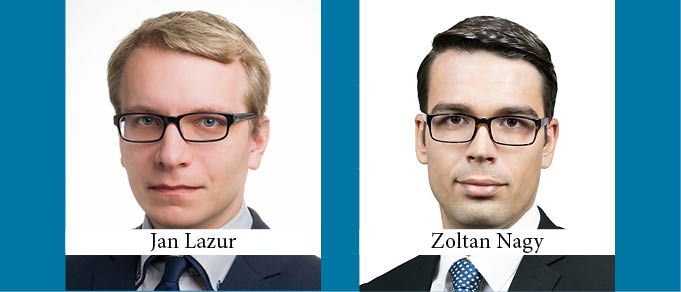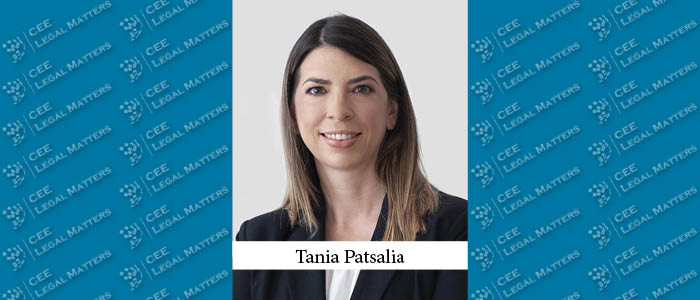When I was first asked to write an Editorial for CEE Legal Matters, I was told that it should be something personal or funny. As “funny,” by definition, does not get along with the legal profession very well, I will have to stick to reflecting on my 20-year career. I will share a few thoughts on the dilemma of whether to pursue a legal career in London or in Bratislava and on the changing world around us that impacts (and arguably, enhances) the lives of legal practitioners in one of the CEE countries.
Marketing Law Firm Marketing: The Supportive Partner
To a large extent, the ability of law firm marketing and business development experts to successfully promote the firms they work within depends on the support they get from their firms’ partners. So we asked them: What partner at your firm would you single out for her/his recognition of the value of what you do and ability to get you what you need efficiently and quickly?
Austria’s Struggle with the GDPR
With its National Data Protection Amendment Act 2018 (“DSG 2018”) enacted well before the May 25th 2018 deadline, Austria is considered to be one of the EU leaders regarding the implementation of the GDPR. To be precise, the DSG 2018 was implemented in May, 2017, shortly before Austria’s national elections took place. The consequence of Austria’s attempt to play a pioneering role is that the DSG 2018 was rushed, and thus, at least in some parts, extremely difficult to read – and it fails to take advantage of the majority of the permitted GDPR derogations.
A Brand New Alternative Dispute Resolution Mechanism for Resolving Domain Name (.sk) Disputes in Slovakia
For a number of years, Slovakian courts struggled with domain name disputes. Because there was neither statutory legislation concerning the rights to domain names nor consistent case-law allowing for the formulation of principles for resolving disputes that arose involving them, different courts took different approaches regarding how to decide domain name cases. This made legal certainty and predictability extremely difficult for stakeholders in the country.
Customer Due Diligence for Cryptocurrency Companies: Data Protection and Anti-Money Laundering Law in Slovenia Prohibit the “Standard Approach”
With the tremendous increase in the price of cryptocurrencies in 2017 the world has witnessed an explosion of cryptocurrency-related enterprises, with initial coin offerings at the forefront. Several European countries have aligned their legislation to become appealing for such enterprises and Slovenia has been mentioned on several occasions as one of the most “crypto-friendly” countries. However, as Slovenian legislation offers a very high level of protection to personal data regarding identity documents, crypto business ventures within the Slovenian jurisdiction may be at a disadvantage against foreign competitors.
Upcoming Changes to the Polish Industrial Property Law
More than two years ago a new system for examining trademark applications was introduced in Poland. The purpose of the so-called “opposition system” was to adapt Polish regulations to EU and international regulations and the jurisprudence of the EU Court of Justice.
Additional Regulation of Data Protection – The Croatian Outlook
Starting May 25, 2018 the General Data Protection Regulation will come into effect. Although it will apply directly in all EU Member States, Member States have the option to add additional regulations to certain specific situations. This article sets out a brief overview of the key provisions of the draft of the relevant Croatian law, which is in procedure before the Croatian Parliament at the moment of writing of this article.
Competition: Leniency After the Antitrust Damages Directive in Hungary: A Compromise Between Private and Public Interests?
Fighting against cartels has always been crucial to protecting fair competition and fostering economic growth. A proper leniency program is an important instrument for the competition authorities, allowing them to uncover and penalize such anticompetitive conduct.
Preparing for the General Data Protection Regulation in Macedonia
The GDPR, which entered into force in the EU on May 25, 2018, will also have implications for Macedonia-based companies.
GDPR: A Perspective on Compliance Challenges Within Large Organizations
With less than a month before it eventually rolls out across the EU, the GDPR is still treated by many businesses as a complicated piece of legislation triggering serious debate between professionals and regulators and imposing a heavy compliance burden for large organizations. However, the GDPR implementation date – May 25, 2018 – should be looked at more as a starting line rather than a hard deadline, providing organizations with the opportunity to map – through their search to identify any personal data processing – both their entire corporate life and their day-to-day operations.
Trade Secrets in Serbia
As Serbia is gearing up for EU accession, harmonizing with EU legislation and business practices becomes not only mandatory, but also a market necessity. Although there are discrepancies between business practices in Serbia and in the EU, one thing seems to be unanimous: local businesses, just like their international counterparts, think ahead when it comes to securing their assets. This applies to every type of business, but it is prevailingly visible in local medium-sized to large businesses which predominantly handle and/or deal with IP portfolios. Nowadays, in the ever-evolving digital world, where almost information is at the reach of one’s hand – even to those located in remote corners of the world – attention and focus are being switched to ensuring the adequate protection of trade secrets. This process is happening in Serbia as well.
Codes of Conduct: The Key to GDPR Compliance for SMEs
After years of anticipation, the EU General Data Protection Regulation (GDPR) entered into force and took effect on May 25, 2018, bringing about several changes to Europe’s current data protection regime.
Keeping Track of Data Processing
Without going into too much detail, having seen the recent turmoil regarding the implementation of the General Data Protection Regulation and the fact that the subject has been more than widely debated, we wish to point out that, from our point of view, record keeping of data processing activities is a key aspect in a proper GDPR implementation scheme.
Personal Data Protection Under Turkish Law: An Overview of Compliance Projects
After Personal Data Protection Law number 6698 came into force (April 7, 2016) in Turkey, and following a two-year-transition period (which concluded on April 7, 2018), the compliance process has been initiated in regard to general principles and rules on processing of personal data.
IP for Software, or What One Should Know When Acquiring Proprietary Rights to Software
According to experts, Ukraine ranks fourth in the world in export of IT-products; i.e., software. It is not a rare phenomenon for Western counter-parties buying software to encounter a low level of pre-sale clearance. In other words, the Ukrainian sellers are not always able to confirm their title rights to the software they dispose of, potentially exposing foreign buyers to the risk of IP-related claims of third parties.
Significant Changes on the Hungarian Renewables Market: New Limitations and Opportunities
While no more applications for Micro Projects (those below 0.5MW) can be submitted under Hungary’s very generous mandatory off-take system since the end of April 2018, the Government seems to have acknowledged that the projects already licensed under the subsidy regime may not be physically implemented within the strict deadlines set forth in the original legislation. Therefore, it is now possible for entities that applied for licenses after January 1, 2016 to ask for a three- years extension to complete their projects without any sanction. This is good news for license-owners and potential investors, as they have a reasonable amount of time to manage the relatively burdensome permitting proceedings and can also secure project finance. This is also good news for the Hungarian state budget because the first heavy payments to the projects under the mandatory off-take system will be delayed by a few more years.
Facing the Public After the GDPR: How to Draft Privacy Notices
Based on the transparency requirements of the GDPR, companies must now provide more detailed information on data processing. The usual form of relaying this information to the public is through a privacy notice. Now that May 25, 2018 is fast approaching and companies are working towards GDPR compliance, such privacy notices must be finalized.
GDPR Misconceptions
The GDPR comes into effect on May 25, 2018. Since data processing concerns a wide range of activities, very few companies or entrepreneurs will be unaffected. Numerous articles and discussions have been posted about the GDPR in the media, some of which contain false or misleading information and therefore give rise to concern, especially considering the possibility of high penalties. Failure to adopt national implementing legislation does not help the situation either. In this article we would like to highlight some of this misleading information and explain the inaccuracies.











































